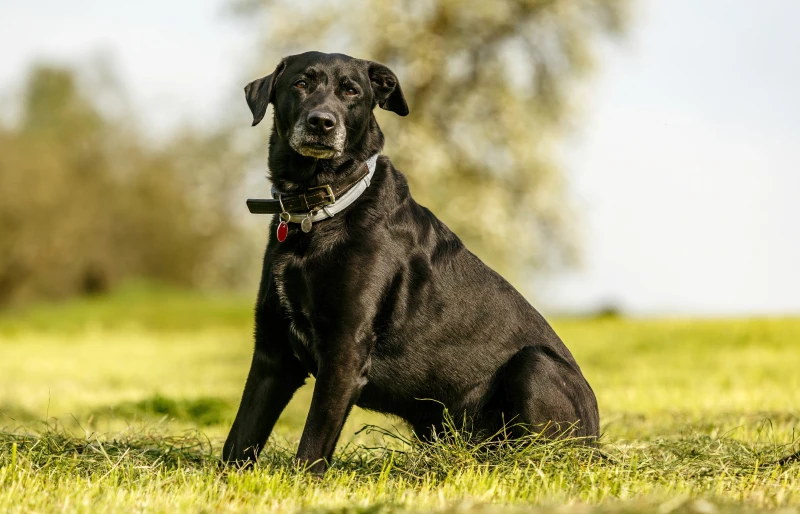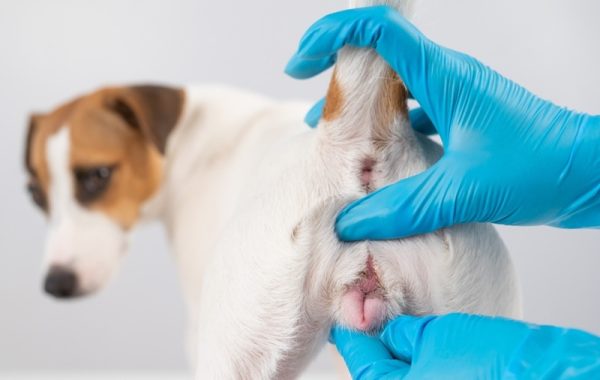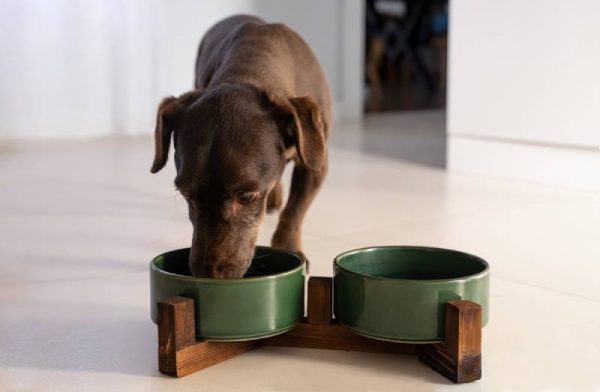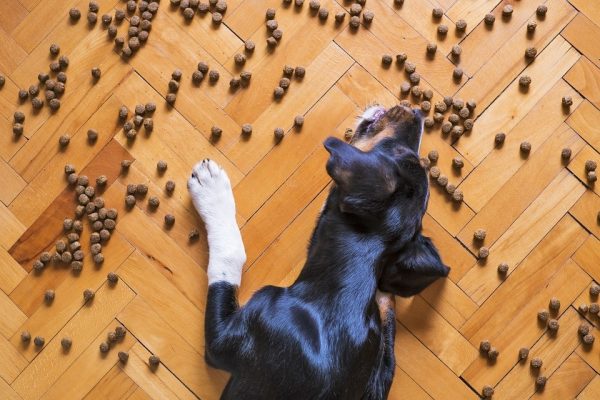In this article
View 8 More +Dogs are essential parts of our society. They provide unconditional love and loyalty, never-ending companionship, and emotional support when we need it the most. It’s not just little dogs that offer this, of course. Large breeds like the Labrador and Cane Corso mix have all these qualities and more!
Breed Overview
Height:
22–25 inches
Weight:
70–95 pounds
Lifespan:
10–12 years
Colors:
Blue, hazel, brown, amber, brindle, black, fawn, grey
Suitable for:
Families, singles, inexperienced dog owners
Temperament:
Loving, loyal, playful, social, intelligent
The Labrador Corso results from breeding the Labrador Retriever and Cane Corso together. This powerful, rugged canine was born to work. They are compassionate and loyal to their human companions, and they tend to be territorial, which makes them great guard dogs.
Their temperament is generally loving, playful, social, intelligent, and loyal, but specific personalities can vary depending on the parent breed that a Labrador Corso puppy takes after the most. Since the Labrador Retriever and the Cane Corso are intelligent dogs, the Labrador Corso will also be quite smart.
While the average Labrador Corso can look intimidating with their muscular body and broad chest, they’re fun-loving pups. They require plenty of daily exercise to stay happy and healthy, and they do best in homes with fenced yards but can adapt as necessary.
Labrador Corso Characteristics

Labrador Corso Puppies
Labrador Corso puppies are spritely, full of adventure, and eager to please their human companions, even the children. When they’re puppies, they can’t do much damage when roughhousing with adults and kids. However, as they age, they can accidentally injure kids if not properly supervised.
Their height and weight gains are significant in the puppy years, so they can cause damage without meaning to while just a few months old. That’s not to say they are viscous or mean, as nothing could be further from the truth. Any incidents are typically out of love and excitement, not aggression.
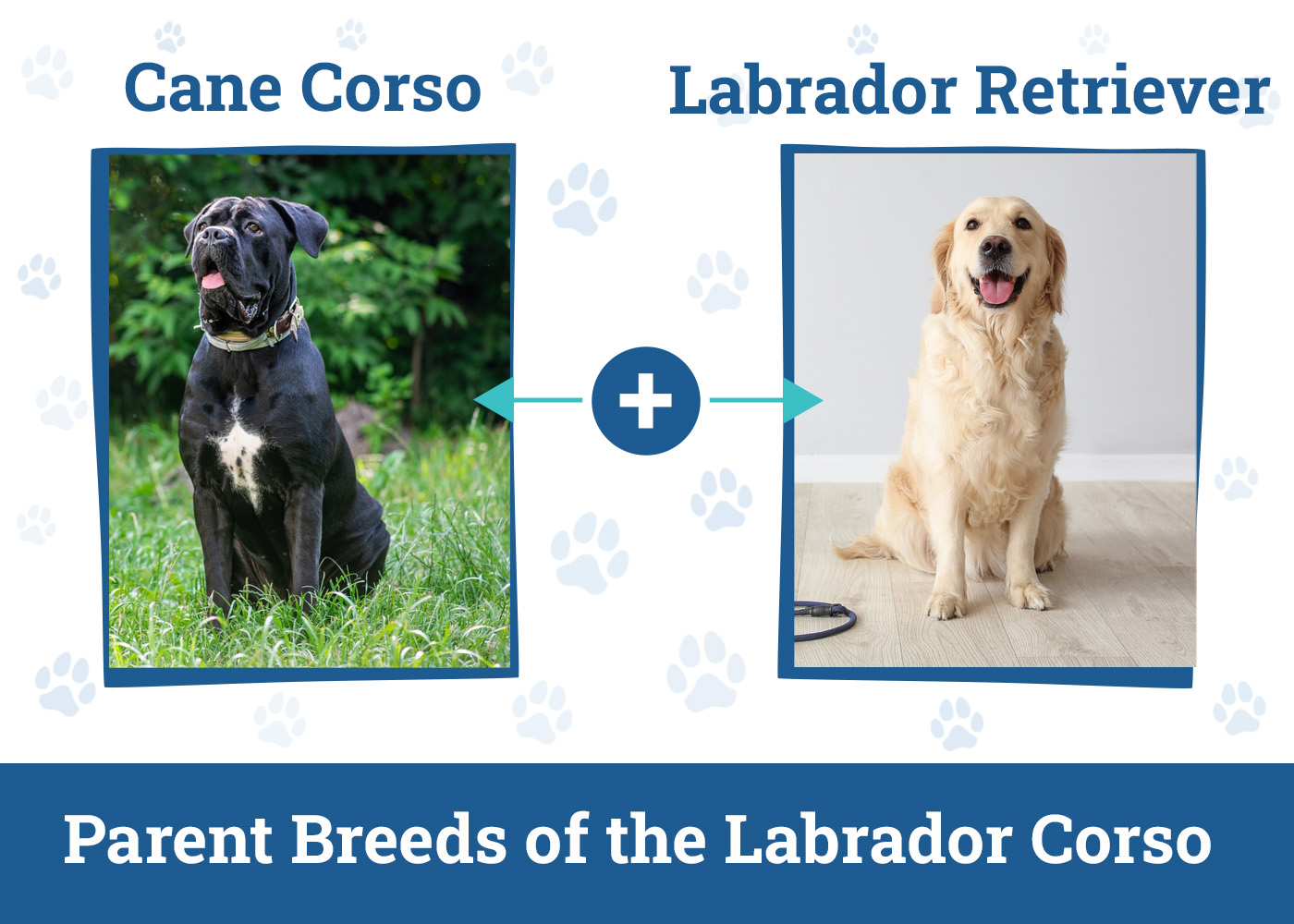

Temperament & Intelligence of the Labrador Corso
The Labrador Corso is an intelligent dog that learns quickly and seems to understand what’s happening around them in social settings. They are powerful and full of energy, so they need daily exercise to keep them balanced. They love to hike, swim, and go on car adventures.
Are These Dogs Good for Families?🏡
The average Labrador Corso loves spending time with humans and playing games whenever there is an opportunity to do so, both indoors and outdoors. They naturally want to protect their family members and territory, so obedience training is necessary.
Labrador Corsos are not typically aggressive toward those they don’t deem a threat, so they must be taught how to determine threats and how to react appropriately to them. However, they are calm and patient dogs, making them great companions for kids of all ages. They do best in large families, where multiple people have time to stimulate their minds and bodies throughout the day.
Does This Breed Get Along With Other Pets?🐶 😽
The answer to this question is not cut and dry. Yes, the Labrador Corso can get along well with other pets, but they usually require conditioning. Otherwise, they may see cats or other dogs as threats or prey to contend with. Socialization with other animals as a puppy is essential to ensuring that they will get along with household pets and other animals outside of the house when they are full-grown adults.

Things to Know When Owning a Labrador Corso
Food & Diet Requirements 🦴
The Labrador Corso requires a high-quality diet with plenty of protein to support and maintain their massive size and strong muscles. Commercial food with real meat as the first ingredient and no artificial ingredients should provide the nutrients they need to experience a high quality of life. It’s a good idea to choose a food designed specifically for large-breed dogs, as it will be formulated with specific nutrients to support muscle and bone growth and sustain the muscles and bones throughout adulthood.
- For Puppies: DIAMOND Naturals Large Breed Puppy Formula
- For Adults: Eukanuba Adult Large Breed Dog Food
- For Seniors: Nutro Natural Choice Large Breed Senior Formula
Exercise 🐕
The average Labrador Corso should get at least 1 hour of exercise daily to maintain strong bones and a healthy mind. The best form of exercise for this crossbreed is walking. They do well with two walks of about 30 minutes each per day. They also enjoy swimming in pools and at the beach, playing fetch at the park, and going on moderate hikes.
Without enough exercise, Labrador Corsos will look for ways to get rid of their pent-up energy, such as excessive barking, roughhousing inside when they shouldn’t, and destructive behavior with household items. Therefore, getting them outdoors for exercise should be a daily priority for Labrador Corso owners.
Training 🦮
Due to the smarts of the Labrador Retriever and the Cane Corso, owners can expect their Labrador Corsos to be intelligent and moderately easy to train. However, they know they’re smart and may try to manipulate your training efforts. Their strong will and sense of humor sometimes lead them to “trick” their owners into giving out more treats than deserved and forgetting to follow through on executing commands.
Daily practice, patience, and consistency should ensure that training is a positive and successful experience. Training should start early when the Labrador Corso is still a puppy. You can begin with the basics as soon as the pup is brought home for the first time. Being firm yet positive while training is vital to avoid confusion and frustration. Labrador Corsos do best with praise rather than negative reinforcement.
Grooming ✂️
The Labrador Corso is easy to groom due to their short, straight hair. They shed, but a couple of brushing sessions a week should keep the shedding in check. Bathing is unnecessary unless their coat gets dirty or smelly. They may need nail trimming, but their daily outdoor exercise should help keep the nails naturally trimmed.
It’s a good idea to clean their ears with a damp cloth or cotton ball once a week. Brushing their teeth daily or administering dental chews will minimize the risk of gum disease. The Labrador Corso should be exposed to grooming as a puppy to get them used to the process.
Health and Conditions ❤️
As a crossbreed, the Labrador Corso is susceptible to the health conditions that their parents are prone to. However, they are usually healthy dogs that don’t typically experience serious health issues.
- Cataracts
- Entropian
- Allergies
- Diabetes
- Epilepsy
- Hip and elbow dysplasia
- Bloat
- Hemolytic anemia
- Heart disease

Male vs. Female
Sex plays a minor role in the Labrador Corso’s temperament. For instance, males tend to be more independent and protective of their family members than females. Many owners also notice that their female Labrador Corsos are less energetic than their male counterparts.
However, there are no hard-and-fast rules about how a male or female Labrador Corso should behave. Much of Labrador Corso’s temperament and personality is passed down from their parents. One pup might take more after their Labrador Retriever parent, while another might reflect their Cane Corso parent. Even if two dogs are the same sex, they will exhibit noticeable differences.
3 Little-Known Facts About the Labrador Corso
1. They Wish That They Could Be Lap Dogs
Even though Labrador Corsos have a formidable appearance, they love to snuggle with their human family members. If they could fit, they would not hesitate to spend all their time in someone’s lap. Just because they are too big to do so usually doesn’t stop them from trying!
2. They Are Gentle With Young Children
It’s as though the Labrador Corso is aware of how powerful they are because they tend to go out of their way to remain gentle and patient with young children. They typically put up with teasing and tail-pulling, and they rarely become aggressive over toys and treats.
3. They Tend to Take Well to the Water
Like their Labrador Retriever parents, Labrador Corsos enjoy swimming in the water, no matter the source. They’ll happily ride the waves at the beach, jump into the backyard swimming pool, and paddle alongside their companions in a lake. They also don’t mind riding in boats or floating on surfboards.

Conclusion
Labrador Corsos are exceptional dogs that bring so much to the table when it comes to being a household pet and guardian. With plenty of love and training, they are fun-loving, sociable, adventurous, and well-behaved when spending time outdoors with strangers. They are large in size and heart and can easily find their place in the family dynamic.
See Also:
- American Pit Corso (Cane Corso Pitbull Mix): Guide, Pictures, Care & More
- Cane Corso Boerboel Mix: Guide, Pictures, Care & More
Featured Image Credit: Annabell Gsoedl, Shutterstock
